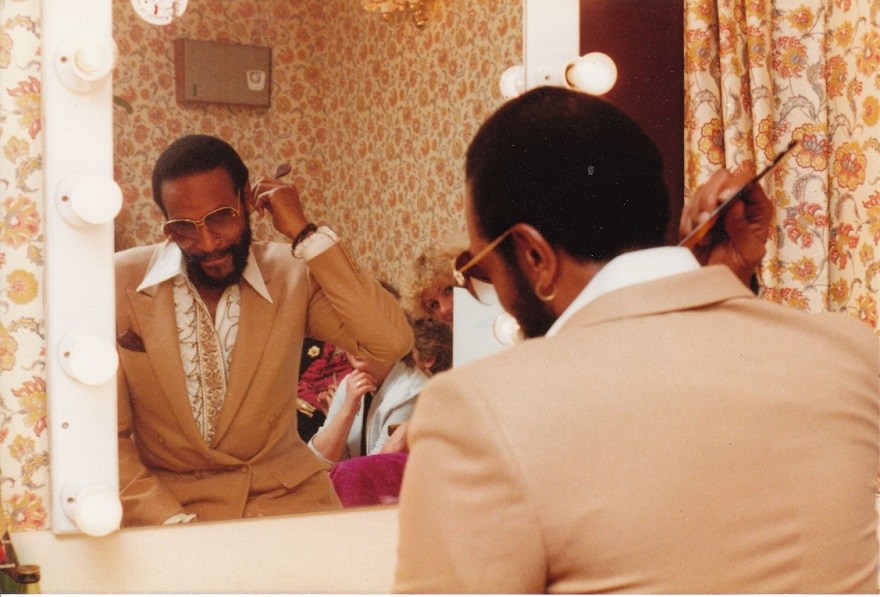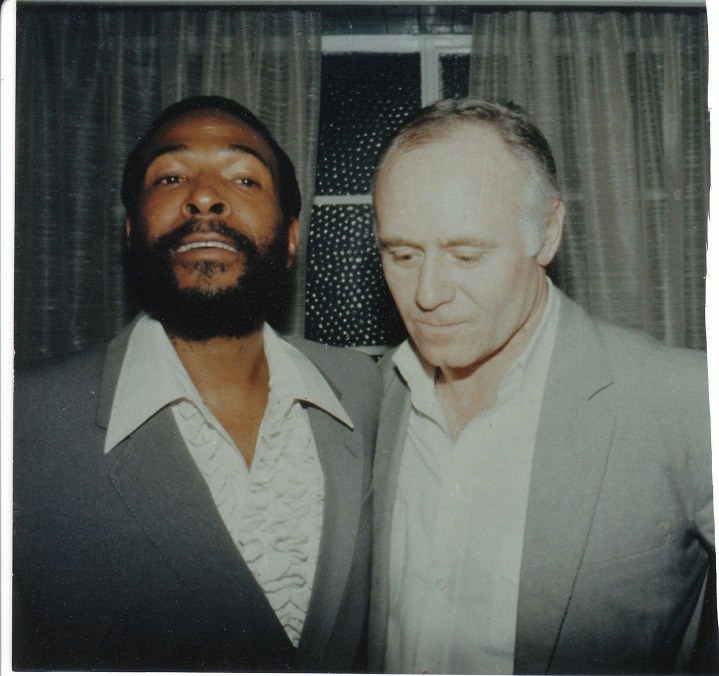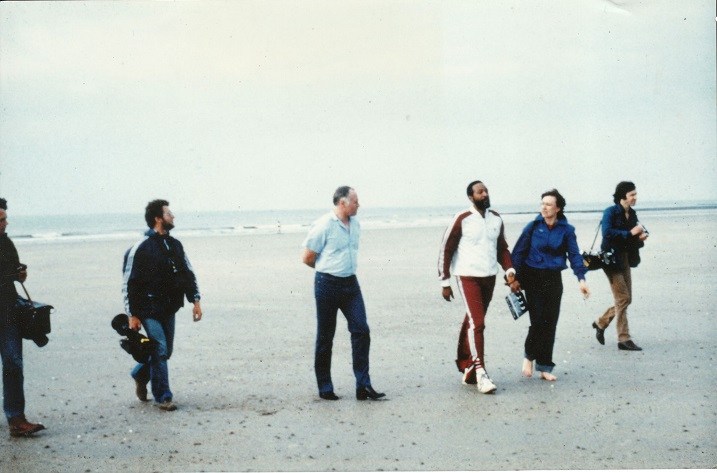Six thousand one hundred and five kilometres lie between Washington DC and Ostend. The Atlantic Ocean and a cultural chasm separate the urban slum where Motown icon Marvin Gaye grew up from this quaint fishing port and former pleasure resort of the Belgian royals.
Both of these were crossed when the singer made the journey from America to Belgium in February 1981.What was he looking for?
Battling drink, drugs and multimillion-dollar debts, the 42-year-old Prince of Soul fled it all for the brasseries and fried fish stands of Belgium’s only seaside city. It was during his nearly 18-month stay here that the voice behind Sexual Healing found some healing of his own, before returning to America – with tragic consequences.
Gaye's early years had been turbulent; he grew up in a household ruled by his severe father, a preacher from an ultra-zealous Pentecostal sect, also rumoured to be a crossdresser and a sadist. In a biography of the singer by David Ritz, his sister, Jeanne, described Marvin's teenage years as “a series of brutal whippings”. Aged 17, he ran away from home to enlist in the American air force, though he left the service after only a few months claiming to be suffering from a mental illness.
Just a few years later he was in Detroit and had signed with Motown, the record label that had already helped make stars of Smokey Robinson, The Supremes and Stevie Wonder.
However, as Gaye’s fame grew, so too did his debts and dependence on drugs. In 1979, he tried to kill himself by swallowing almost 30g of pure cocaine while on a binge in Hawaii. Owing millions to the US government as well as $600,000 to an ex-wife as part of their divorce settlement, Gaye was reduced to living in an old bread delivery van. Things worsened when he fell out with Motown, cutting ties with the label completely in 1981.
“It was when Gaye was in London trying to escape it all that he met Belgian music promoter Freddy Cousaert,” explains Pieter Hens from the Ostend tourist office. “Cousaert was a big fan and he knew about Marvin’s love of the sea – so he invited him to stay with his family in their apartment in Ostend to help him recover.”
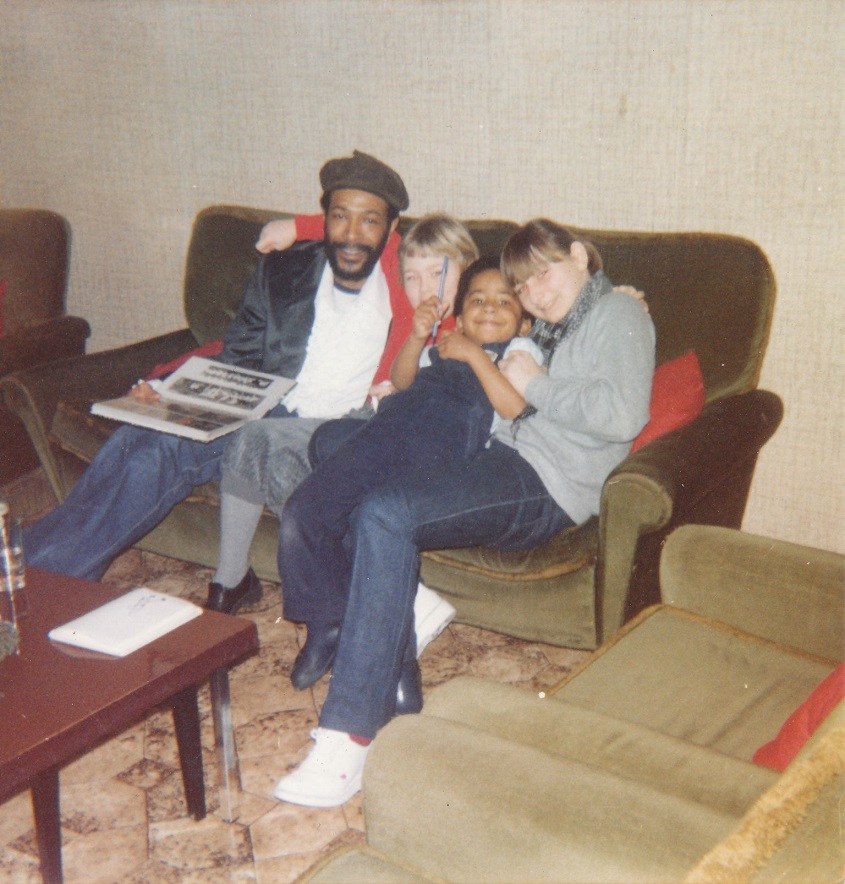
Credit: Fam. Cousaert
“Ostend is my orphanage”
During his time in the Belgian beach town, Gaye dropped his party lifestyle completely, abstaining from sex, going for long runs along the North Sea in his Adidas tracksuit, and singing at church.
He was often to be seen playing basketball and darts with local Ostenders and visiting his favourite cafe, Floride, on the promenade for breakfast.
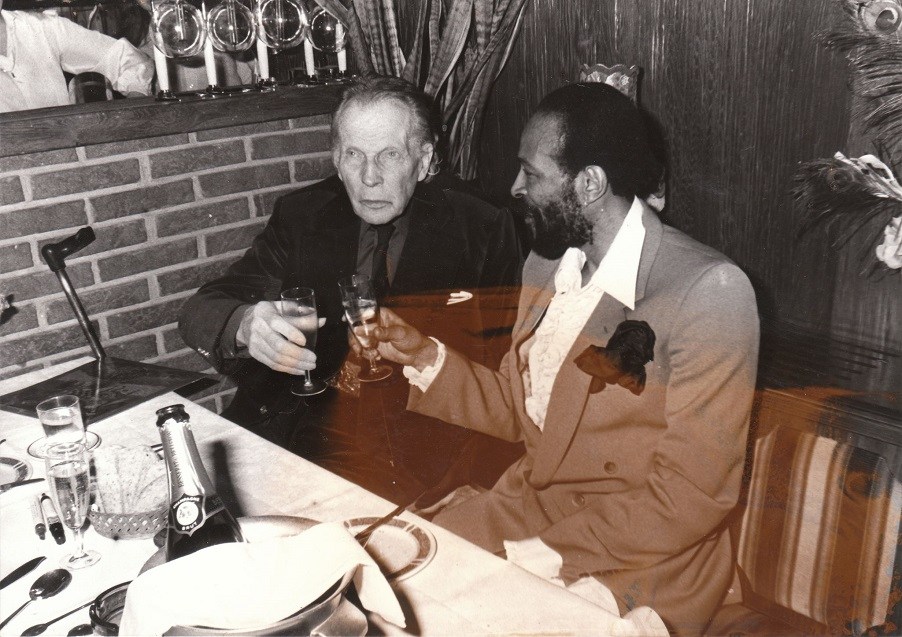
Credit: Fam. Cousaert
“Some locals were a bit shocked at first,” says Hens. “There weren’t many non-white people in the town at the time and, of course, everyone knew his name. But many older Ostenders have happy memories of spending time with Marvin, and some of their children became good friends with his own when they came to school here, and remember going to birthday parties with them. Lots of the local musicians reminisce about playing with him.”
Gaye was very open about the solace he found in the town; he admitted on Belgian television that he felt like an orphan, claiming “Ostend is my orphanage”. He said: “There are plenty of places I’d like to be rather than Ostend, but this where I need to be.”
Surprisingly, given his lack of sexual activity at the time, the soul singer’s monastic existence in Belgium inspired him to write Sexual Healing, the song for which he won his first ever Grammy award.
The song was written in Cousaert’s home at the Residence Jane apartment block and released in September 1982; it quickly reached No. 1 in the singles charts and spent a record ten weeks there. Its music video was filmed at Ostend's art deco concert hall, the Casino-Kursaal.
All these places are key stop-offs in the two-hour “walkumentary” – a walking tour from the Ostend tourist board available to download to your smartphone. “You can explore Marvin Gaye’s favourite haunts while watching original footage of him out and about in the town and interviews with people who knew him,” says Hens.
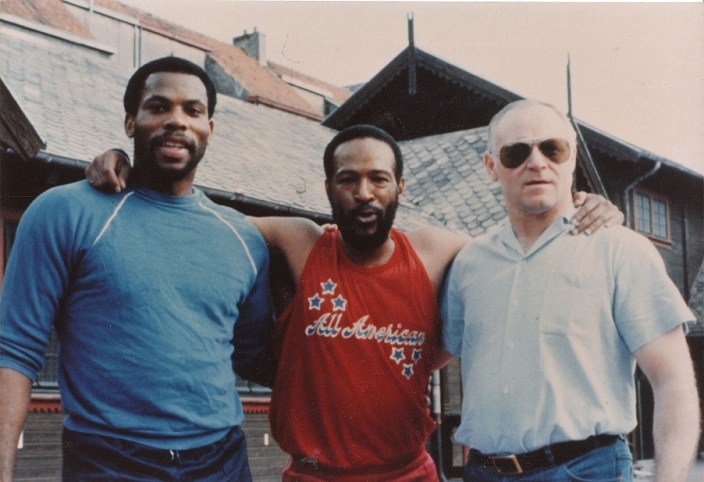
Credit: Fam. Cousaert
“Most of those around him were convinced he’d settle in Belgium for good,” he adds. It certainly seemed so: in autumn 1982, Gaye bought a 21-room mansion just outside of Ostend. But when he was offered the chance to return to America to tour just a few weeks later, he seized it and left his European refuge for good.
Less than two years after his return, Gaye was found dead at his parents’ home in Los Angeles. He had been shot at point blank range the day before his 45th birthday by his own father with a gun Gaye had given him as a Christmas present. He had been trying to break up a fight between his parents.
Many attempts have been made to turn the singer's turbulent life into the subject of a film, with A-listers including Lenny Kravitz and Will Smith among those rumoured to be playing him. “Lenny Kravitz visited Ostend and we organised a tour for him,” says Hens. “But in the end nothing came of any of the films because Gaye’s family were unhappy with the plans.” However, last year, talk of a biopic resurfaced, this time supposedly with rapper Dr. Dre as its producer.
Whether he is immortalised on screen or not, Gaye’s memory won’t be fading from the streets of Ostend anytime soon. The soul legend, who was born 80 years ago this year, is commemorated both physically by a life-size bronze statue outside the casino where the video for his greatest hit was shot, and virtually by the digital walking tour that attracts thousands of fans a year to this quiet corner of the Belgian coast.
“Marvin Gaye is a name that is known across the world,” says Hens. “Most of our visitors are Belgian, but we also have people come from America...Asia...all over. We’d love to create a museum dedicated to him one day; I think a film would give Ostend enough of a spotlight to make it the perfect opportunity to open one.”
From the holiday hotspot of kings to a modest fishing town, being gradually swallowed up by apartment blocks: just as Ostend gave Gaye, at least temporarily, the healing he needed, maybe the Prince of Soul can give this seaside resort a new lease of life.
By Marianna Hunt

